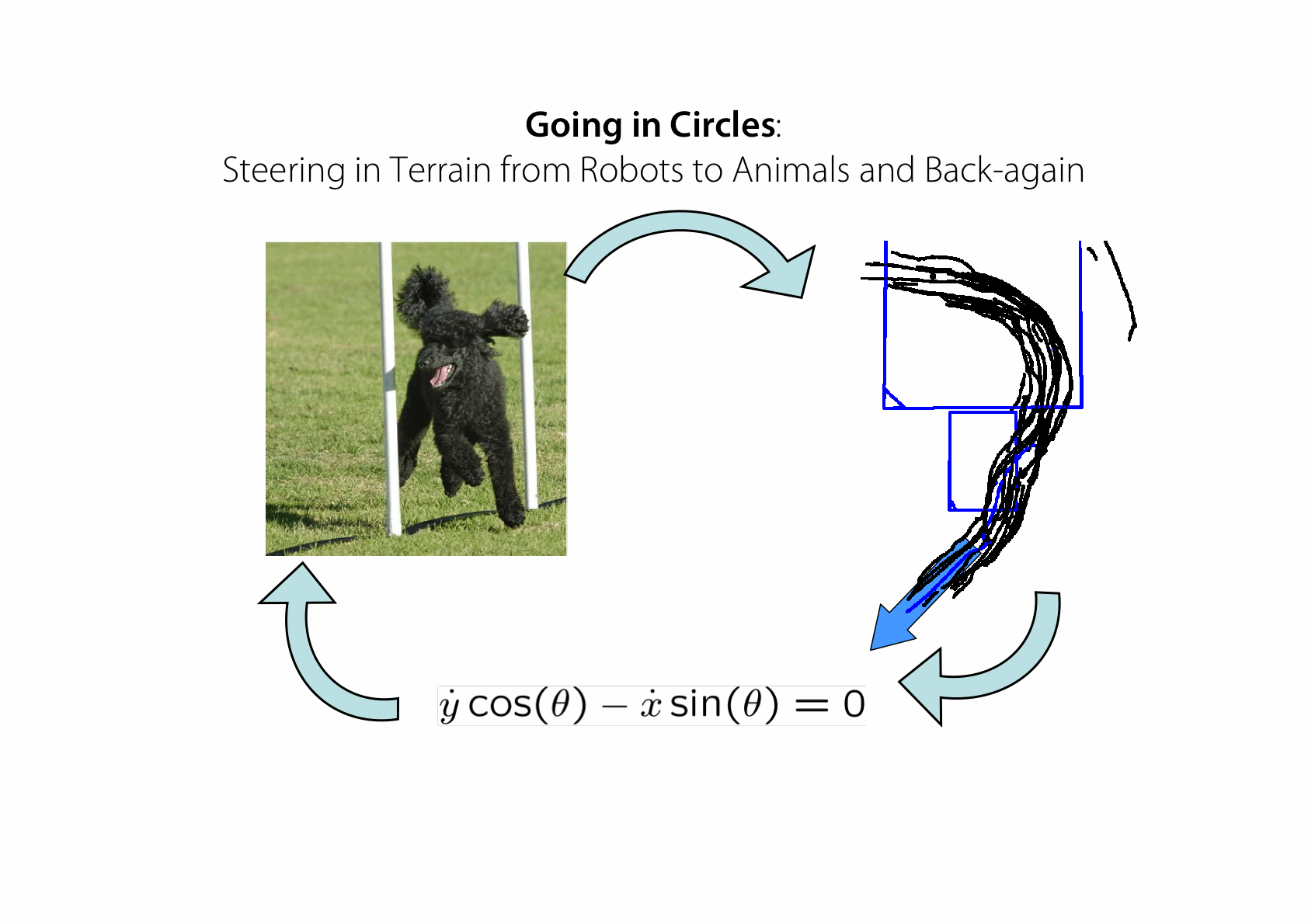
Going in Circles: Steering in Terrain from Robots to Animals and Back-again
Wednesday 9th Sep 14:05-14:55pm, Eastern Avenue Lecture Theatre.
Steering is so common that it seems deceivingly simple - one just accelerates, decelerates, or turns. However, combining these actions in a principled manner for optimal control is non-trivial as locomotion at speed is coupled and differentially constrained.
More generally, this can be viewed as an inverse control problem for non-holonomic systems. However, analytic solutions are extremely difficult to characterize. Thus, a "motion planning" approach is introduced that solves this by transforming the continuous problem into a combinatorial one. This gives a more widely applicable, yet discrete, technique that can additionally handle obstacle constraints.
This method is illustrated using examples from robotics (agile driving in unstructured environments) and biomechanics (running/galloping gait analysis). Recent extensions in "performance sensitive motion planning" that consider estimates of likely motions and controls will also be discussed in relation to future applications in sports training and robot teleoperations.
